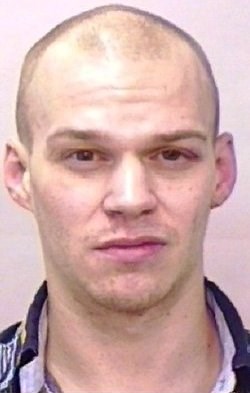So far, both forensic psychiatrists who've testified on Paul Whalen's behalf during his dangerous-offender hearing have said he should not return to live in Sault Ste. Marie.
Ontario Court Justice John Keast continued on Wednesday to hear from expert witnesses called by Whalen's amicus curiae representative, Anik Morrow.
Dr. David Nussbaum reinforced statements made earlier by Dr. Julian Gojer, indicating that Whalen would be more likely to return to a life of crime if he returns to the place where that life spiralled out of control and self-destructed.
"He would be more likely to associate with the people he offended with before," said Nussbaum.
The psychiatrist agreed with Morrow when she suggested that the most effective rehabilitation for Whalen would focus on the future.
Nussbaum said it would be better if Whalen could avoid being reminded of traumatic events that happened in the Sault and avoid the negative emotions and negative behaviour patterns that go with them.
He also talked about the differences in Whalen's behaviour while in the Sault Ste. Marie and Toronto East Detention Centres.
"His behaviour and demeanoor were better, almost optimal, at the Toronto East Detention Centre," said Nussbaum. "When I talked with him about that what he told me was that when he was in Sault Ste. Marie he had to be this tough guy but when he was in Toronto no one knew him and he didn't have to be that guy. He could be more relaxed."
Nussbaum also said that, based on his clinical observations and quantitative tests conducted on Whalen, he concluded Whalen does not exhibit any of the classic signs of anti-social personality disorder.
"If you look at his anti-social behaviours they're definitely there," he said. "But if you look at where they are coming from, the anti-social traits just aren't there."
Nussbaum said that people with anti-social personality disorder traits will typically be very ego-centric and care little about others.
Whalen, he said, has a slightly-lower-than-average opinion of himself and he demonstrates remorse for the things he's done.
True psychopaths and people who exhibit anti-social personality disorder traits do not feel remorse for what they do, nor to they feel anxious about their behaviour, he said.
Whalen, on the other hand, is primarily motivated by anxiety.
"I think anxiety is the major problem Mr. Whalen faces," said Nussbaum. "I think it's really the nexus of all the other difficulties he experiences."
Nussbaum said Whalen does not act out violently or take drugs and alcohol because he's looking for a thrill and has no regard for the consequences of his actions like others who exhibit anti-social personality disorder.
In fact, Whalen uses drugs and alcohol in an effort to self-medicate his severe anxiety symptoms and sometimes that leads to violent and overly aggressive behaviour, he said.
Dr. Nussbaum said Paul Whalen is an individual with above-average intelligence whose criminal behaviour is a result of the disorganizing effects of intense stress as his rationality is overwhelmed by strong traumatic stress reactions.
Court is expected to resume tomorrow with cross examination of Nussbaum by Assistant Crown Attorney Kelly Weeks and questions from Judge Keast.
Whalen's amicus curiae is also expected to call two more witnesses this week.
A video conference with Dr. Gojer is scheduled for Friday morning to conclude his cross examination and afford Keast an opportunity to question him if needed.
